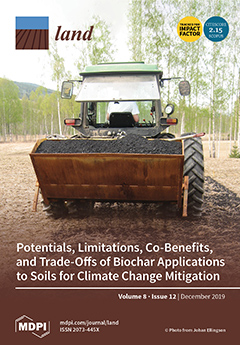Resource information
The coordination relationship between land urbanization and population urbanization is crucial for achieving sustainable development under economic transition. Moreover, the balance between land urbanization and population urbanization is essential to guarantee the urbanization process of an entire city. This paper empirically analyzes the interaction between land urbanization and population urbanization in Nanchang from 2002 to 2017 based on the coupling coordination model (CCM). The impacts of the coordination degree on coordinated development are quantified by multivariate linear regression (MLR). The results show the following: (1) The indices of land urbanization and population urbanization in Nanchang showed an upward trend, and therefore the coordination degree in Nanchang increased significantly from 2002 to 2017. (2) The coordinated development of urbanization underwent two stages: disordered and moderately disordered. (3) The urban population proportion and the supporting capability of agricultural production had a positive impact on coordinated development. Meanwhile, the results also show that per capita education expenditures and the per capita public green area had negative impacts on the coordination degree, while economic development and the urban industrial structure were positive contributors to the coordination degree. Finally, this paper proposes that policies should be formulated to achieve coordinated development of urbanization. It can be concluded that the results regarding coordinated development of urbanization can help decision makers formulate effective measures to achieve coordinated development in the future.


